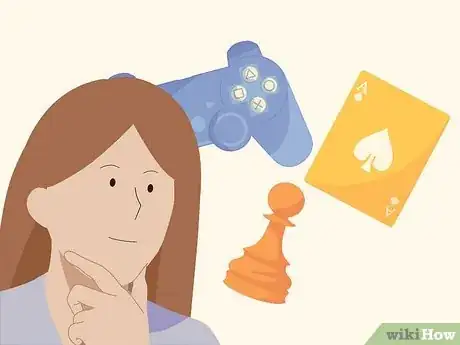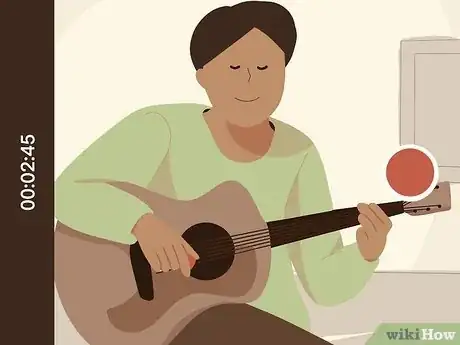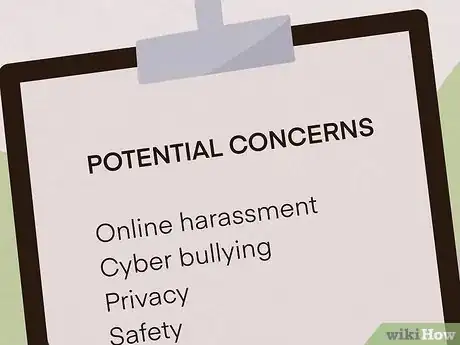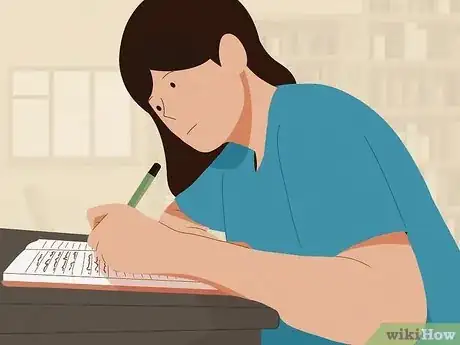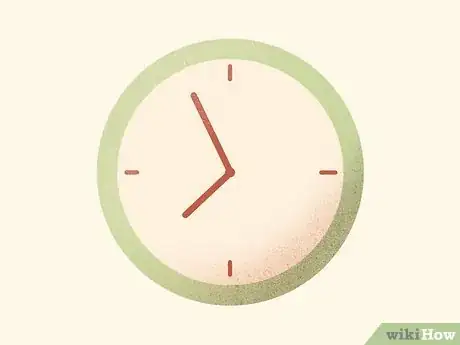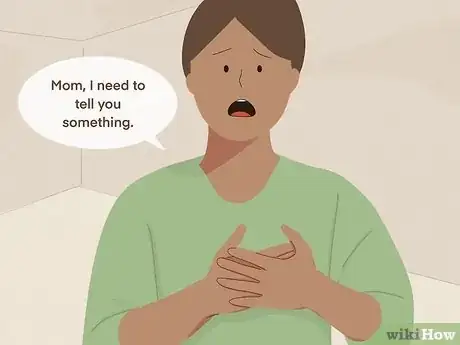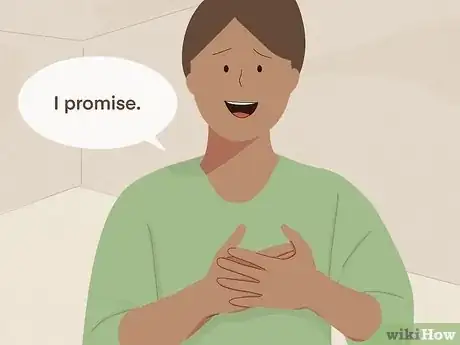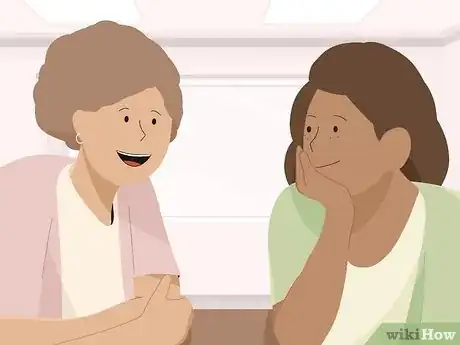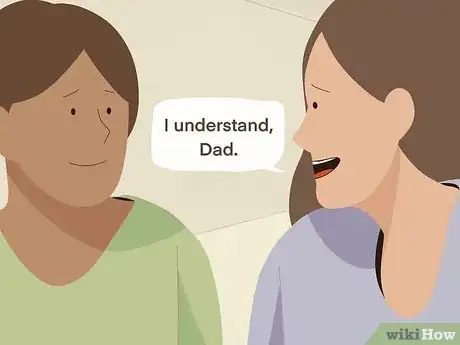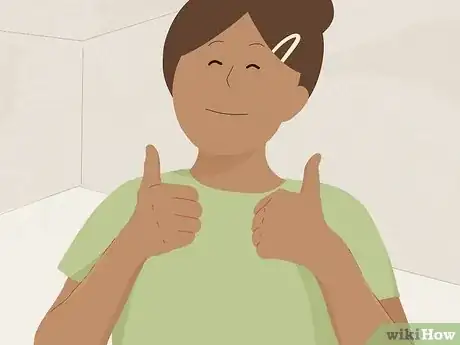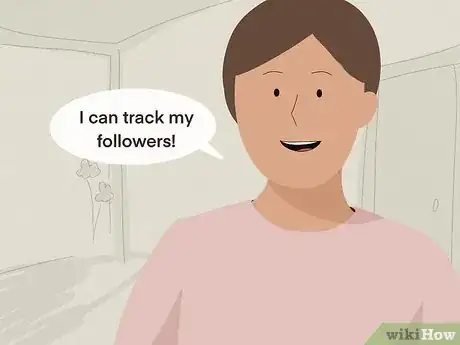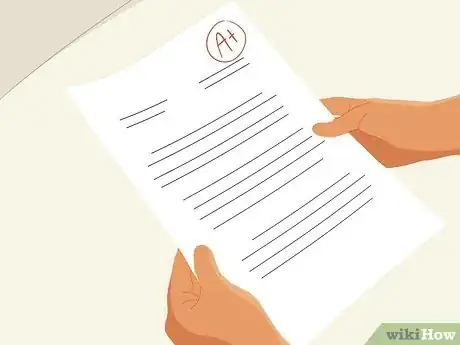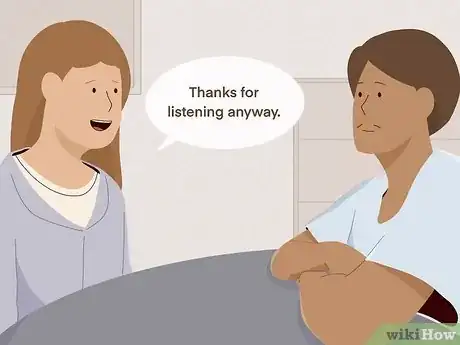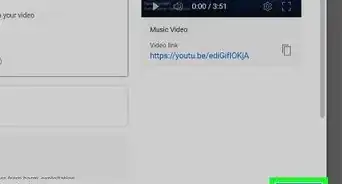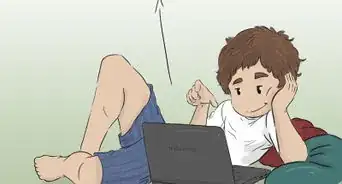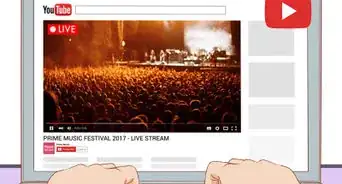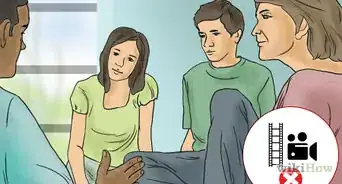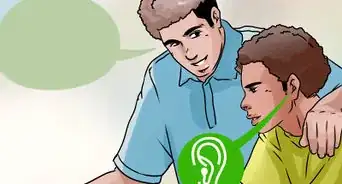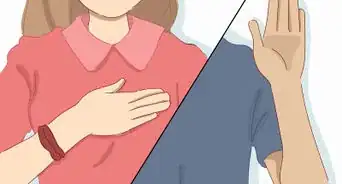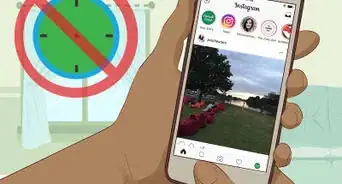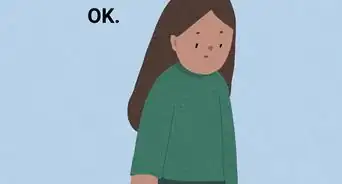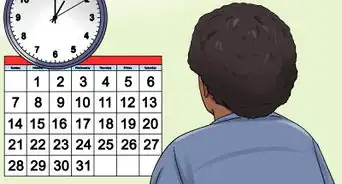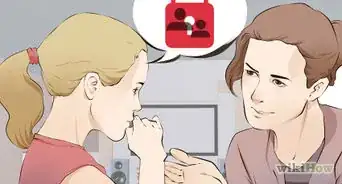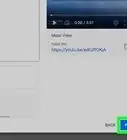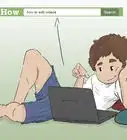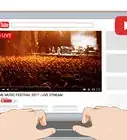This article was co-authored by wikiHow Staff. Our trained team of editors and researchers validate articles for accuracy and comprehensiveness. wikiHow's Content Management Team carefully monitors the work from our editorial staff to ensure that each article is backed by trusted research and meets our high quality standards.
wikiHow marks an article as reader-approved once it receives enough positive feedback. In this case, several readers have written to tell us that this article was helpful to them, earning it our reader-approved status.
This article has been viewed 88,829 times.
Learn more...
A YouTube channel can be a fun, creative project to pass the time. However, your parents may be concerned about safety and privacy issues. If you want their permission, watch YouTube with your parents to show them appropriate content. Ask nicely and offer to be responsible and let them approve videos you upload. If they still refuse, accept the answer for now and try asking again in the future. If your parents see you can maturely accept their choice, they may change their minds eventually.
Steps
Planning Your Approach
-
1Decide on appropriate content. Think about the kind of videos you want to upload and whether they'll appeal to your parents. If your parents are going to agree to let you post videos online, they probably want to make sure you're being appropriate. Figure topics that interest you that could be used appropriately on a YouTube channel.[1]
- People often make channels about their hobbies, political views, pets, and interests. Think about something you're passionate about and find an angle to explore it.
- Maybe you're interested in crafts. You could do craft tutorials on YouTube, which are mostly non-controversial. Your parents are more likely to approve this kind of content.
-
2Make a practice video. A practice video can help you show your parents firsthand the kind of content you'll be uploading. Try making a practice video in your spare time on your computer. Before uploading it to the internet, show your parents the video to see if they'll approve.
- Make sure you keep your video appropriate. Make your video on a non-controversial topic and avoid cursing.
Advertisement -
3Make a list of potential concerns. Parents have a lot of concerns about their children's social media use. Issues like safety, privacy, and online harassment may be major concerns for your parents.[2] Write out a list of any concerns your parents may have and think of ways to address them.
- If your parents are worried about your privacy, offer to keep your face out of your videos. You can make videos using graphics or drawings with you doing a voiceover instead.
- If your parents are worried about online harassment, tell them you'll try not to think too much about negative comments and block anyone who's bullying you online. You can also tell them you'll disable comments on your videos.
-
4Plan what you're going to say. It can help to practice asking a few times. You can rehearse in front of a mirror or jot down your thoughts. You don't have to have an exact script planned out, but it can help to have a rough idea of the words you'll use.
Talking to Your Parents
-
1Find a good time to talk. The time you choose to talk to your parents matters. If you reach out to them while they're stressed or rushed, they'll be less likely to listen. Pick a time when your parents are relatively relaxed and free, like a Saturday afternoon, instead of a busy weeknight.[3]
-
2Introduce the subject directly. When talking to your parents, it's best to get straight to the point. Say something like "Hey, I wanted to ask you guys about something." Then, calmly and maturely introduce the subject. Say something like, "I want to start my own YouTube channel."[4]
-
3Watch YouTube with your parents. Your parents may not be familiar with YouTube and the community surrounding it. Many parents assume online communities are full of negativity or that content is not appropriate or educational. Show your parents the kind of content you're watching so they can understand the appeal of YouTube.[5]
- Pick channels that are mostly appropriate and even educational. Something like the author John Green's YouTube channel is generally educational. It may leave your parents with a good impression of YouTube.
-
4Show gratitude when asking. Flattering your parents a little can help them view you and the situation more favorably. Showing gratitude for all your parents do for you shows maturity, so make sure to work in some gratitude when asking.[6]
- For example, say something like, "I know you guys just want me to be safe, and I appreciate that. I understand that you're strict about how I use the internet because you care."
-
5Tell your parents you'll be upfront about your Internet usage. Parents are usually curious about your Internet usage and many parents track their children's internet habits.[7] The more upfront you are, the more comfortable your parents will be with you using the internet. Tell them they can look openly at your search history and are welcome to watch your channel.
-
6Listen to your parents' perspective. After you've made your case, it's important to let your parents share their point of view. Do not interrupt when your parents' respond and try to genuinely empathize with and understand what they're saying.[8]
- This can be an opportunity to address any concerns. If your parents express hesitation, listening to these concerns can help you find a way to compromise.
Dealing with Setbacks
-
1Avoid arguing or complaining. If your parents hesitate or say no, do not argue or complain as a response. This will only frustrate your parents and could escalate the situation into an argument. Instead of arguing, remain calm and respectfully address concerns.[9]
-
2Agree to keep your videos private. Many parents do not want their children putting their lives online for everyone to see. They may worry about bullying and harassment or people finding you in real life. If this is a major concern, agree to keep your channel private and only share it with good friends and people you know.[10]
- Say something like, "If you don't want me to make the account public, I can keep it private. That way, only my friends can see my videos."
-
3Tell your parents they can track your followers. Parents often want to monitor how their child interacts with others online.[11] If you offer to be as transparent as possible, they may be more comfortable with the idea of you having a YouTube channel. Agree to let them watch your channel and check out the accounts of anyone who follows you.
- You can also tell your parents you will block any followers they don't trust. This can help address any safety concerns.
-
4Offer something in return. If your parents are hesitant, offer some kind of compromise. The YouTube channel can be a reward for good behavior. For example, offer to bring your math grade up. Ask your parents if you can have a channel in exchange for getting a "B" instead of a "C" on your next report card.[12]
-
5Accept their answer for now. If your parents still say "No," accept this. Arguing, complaining, or sulking will only make your parents angrier. If you gracefully accept a "No," your parents will see you're mature and may change their minds in the future.[13]
- End the conversation by saying something like, "Thanks for listening anyway. I appreciate it."
Community Q&A
-
QuestionWhat if they don't let you have social media yet?
 Community AnswerYou can still ask to have a YouTube channel. However, it may help to wait until your parents are comfortable with other social media outlets.
Community AnswerYou can still ask to have a YouTube channel. However, it may help to wait until your parents are comfortable with other social media outlets. -
QuestionWhat if they don't like the video that you posted?
 Community AnswerPolitely ask why they didn't like it and address any concerns they have. You may have to edit parts of the video out and tweak the content before your parents let you put it online.
Community AnswerPolitely ask why they didn't like it and address any concerns they have. You may have to edit parts of the video out and tweak the content before your parents let you put it online. -
QuestionHow can I get my parent to stop watching my videos before I upload them?
 Community AnswerYour parents want to make sure you're safe and posting appropriate content. Allow them to watch your videos, even if it bothers you. If you post videos without their consent, they may tell you you can't have a YouTube channel.
Community AnswerYour parents want to make sure you're safe and posting appropriate content. Allow them to watch your videos, even if it bothers you. If you post videos without their consent, they may tell you you can't have a YouTube channel.
Warnings
- Going behind your parents' backs and making a channel could land you in a lot of trouble. It's best to ask permission upfront so you don't have to hide your channel.⧼thumbs_response⧽
References
- ↑ http://www.tubegeeks.com/starting-a-new-youtube-channel-2012-03/
- ↑ http://motherscircle.net/instagram-safety-tips-for-teens/
- ↑ http://kidshealth.org/en/teens/talk-to-parents.html#
- ↑ http://kidshealth.org/en/teens/talk-to-parents.html#
- ↑ https://www.commonsensemedia.org/blog/a-parents-ultimate-guide-to-youtube#
- ↑ http://www.huffingtonpost.com/hanaan-rosenthal/advice-for-teens_b_2037523.html
- ↑ https://www.commonsensemedia.org/blog/a-parents-ultimate-guide-to-youtube#
- ↑ http://kidshealth.org/en/teens/talk-to-parents.html#
- ↑ http://kidshealth.org/en/teens/talk-to-parents.html#
